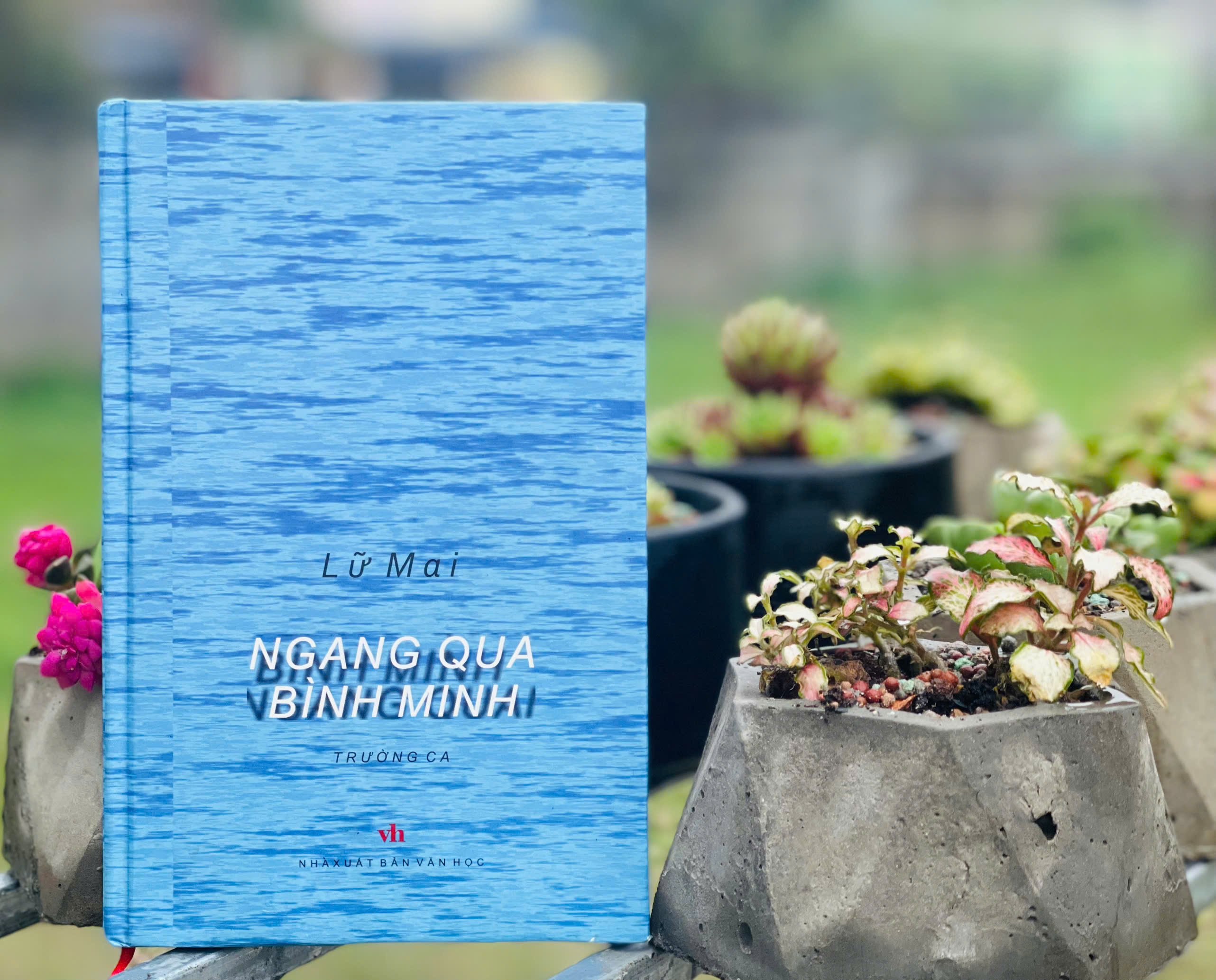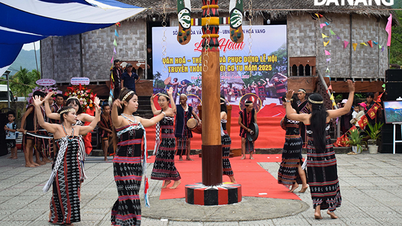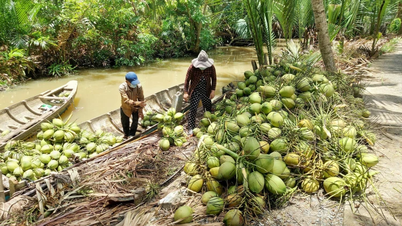 |
Readers know Lu Mai as a journalist and poet. Her journey of life and writing is a path marked by the passion and dedication of an energetic writer. With many books in many different genres and many prestigious literary awards, poet Lu Mai has affirmed her own creative mark.
The author pays special attention to the theme of soldiers and revolutionary war. Her expression of this theme has brought new colors to the atmosphere of contemporary literature. "Nga Qua Dawn" is part of the Ministry of National Defense 's literary creation investment program, published by Literature Publishing House in 2020, and was awarded the Third Prize for writing on the theme of borders and islands from 1975 to present by the Vietnam Writers Association.
Exploiting the strengths of the epic poem in expressing images, interweaving stories and conveying emotions. Throughout 8 chapters: "Starting at Dieu Luong", "Spirit", "Illusion", "Repainting the dawn", "Dreams emerging into the body of the waves", "Starfish days", "Transparent land", "Return", poet Lu Mai has led readers from one perspective to another, thereby expanding the dimensions of perception when thinking about the homeland's sea and islands and the subjects "emerging into the body of the waves".
The vastness of the vastness, the remoteness of the distance, the depth of the soldier's feelings are spread out in free verse. The emotions that the book brings to the reader are like waves touching the depths of the reader. Even the reflections hidden in each paragraph and chapter also make the reader stop to imagine and dialogue, thereby deeply understanding the story of the navy soldiers: "Every night is like tonight/ no complete dream/ peaceful but unstable/ straining to breathe amidst the chaos of traps/ wishing/ to cling to the sea and sky for life/ leisurely fishing for the moonlight soaking the pillow...".
Poet Lu Mai connected his heart to the feelings of the soldiers, had real contact with the sea and islands and also had deep associations. The origin of the soldiers of Diao Liang with historical sources: "... only they can talk/ with the souls residing in Diao Liang" urged them to go out, to continue and affirm the values.
There, the image of the mother, and more broadly, the heart of the rear, is filled with anxiety, even though she "knew in advance that she would grow up and follow her father/ but her heart still ached/ the pain filled her/ took longer to dissipate than the sound of an evening bell".
The setting of the epic poem is thus always deeply focused, each story is expressed movingly. The soldier's journey is therefore a silent and noble journey, expanding himself and his mother's feelings to the depths of the ocean. And then when he goes out into the vastness, his dreams are always restless, both emerging into the waves and diving into the old memories. The feelings of the navy soldier expressing to his mother, lover and homeland are thus depicted in many situations at sea: "the whole sky sways / anxiously wanting to send back to mother / send you the days of starfish phosphorescence / like the story of us".
All of them depict diverse but unified colors of the inherent beauty and modern touches of the image of the soldier in literature. Those beauties are expressed by poet Lu Mai with emotion and suggestion: "My soldiers/ the night is throbbing, the sky and sea are vast/ my island is a small, wistful dot/ the storm roars, the waves roll, the water rises, choking my heart".
“Across the dawn” is the harmony between space and time, between past and present, between reality and transformation, with a system of poetic images rich in metaphors that opens up many dimensions of thought. And then, the image of the soldier reappears with the beauty of an eternal mindset, of the aspiration to be the master and master of the sea and sky of the homeland: “What is the ultimate sacrifice/ is to honestly give away a dream/ joy and sadness unknown/ to blend oneself in the phosphorescent silk strip”. The epic poem thus sows in people's hearts contemplations about the noble aspirations of soldiers in the middle of the ocean.
“Passing the Dawn” also brings moments of silence in the reader’s literary experience. The losses and sacrifices, the ultimate determination, the dreams forever left in the ocean are expressed with great emotion by poet Lu Mai. The value of peace and the depth of that blue dawn are the souls that remain to define the eternal truths about sovereignty .
Every true artistic creation always has the ability to create deep obsessions. Crystallized from experiences after a trip to the homeland's sea and islands, the book therefore brings even more profound and profound emotions about the image of the navy soldier. Lu Mai's epic poem is a deep connection with the flow of life, adding a literary voice to the sovereignty of the sea and islands. And in the end, it is a passage that touches deeply into the reader's soul.
HOANG TRAN
Source: https://baodanang.vn/channel/5433/202504/nhung-ngang-qua-cham-mien-sau-tham-4004794/


![[Photo] Ready for the top competitions of Vietnamese table tennis](https://vphoto.vietnam.vn/thumb/1200x675/vietnam/resource/IMAGE/2025/5/18/9c547c497c5a4ade8f98c8e7d44f5a41)
![[Photo] Many young people patiently lined up under the hot sun to receive a special supplement from Nhan Dan Newspaper.](https://vphoto.vietnam.vn/thumb/1200x675/vietnam/resource/IMAGE/2025/5/18/6f19d322f9364f0ebb6fbfe9377842d3)
![[Photo] Party and State leaders attend the special art program "You are Ho Chi Minh"](https://vphoto.vietnam.vn/thumb/1200x675/vietnam/resource/IMAGE/2025/5/18/6895913f94fd4c51aa4564ab14c3f250)
























































































Comment (0)